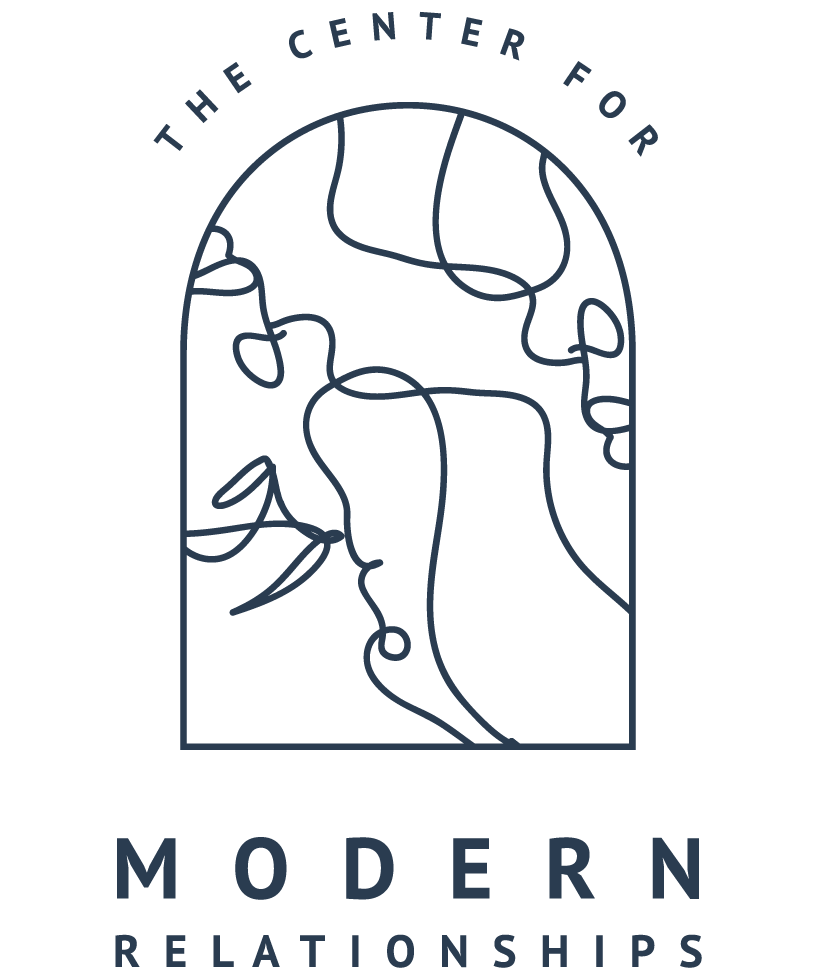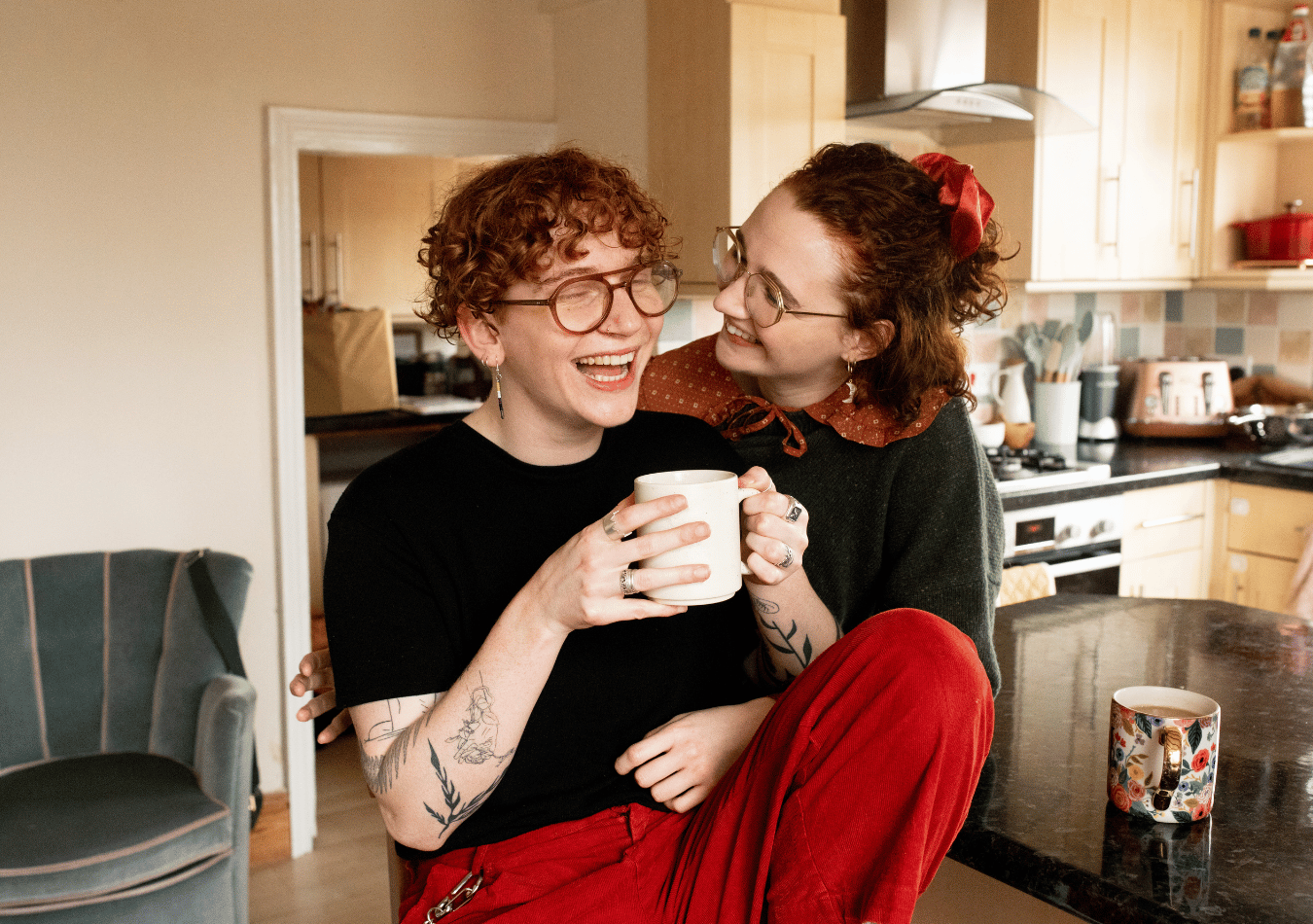
Chicago LGBTQ+ Couples Therapy
Inclusive, affirmative support for LGBTQ+ relationships in Chicago.
Work through relationship challenges with therapists who honor your identity and your relationship.
You deserve a relationship that works for both of you. Whether you're navigating relationship challenges, stuck in communication patterns that create distance, or looking to strengthen your emotional connection, seeking support takes courage. As LGBTQ+ couples, you often face additional layers of complexity—from societal pressures and family dynamics to navigating questions around sexual orientation and gender identity within your partnership. Our LGBTQ+ affirming practice connects you with licensed therapists who understand these realities and create a safe space where you can focus on what matters most: your relationship.
In couples therapy sessions, you'll explore relationship dynamics, work through conflicts, and rebuild intimacy at your own pace. Every session is designed to help you move beyond feeling stuck and create the authentic, resilient partnership you're working toward.
The Benefits of LGBTQ+ Couples Therapy
Before
We feel like we're constantly defending our relationship to the world, and it's exhausting us both. Family gatherings are tense, we avoid certain social situations, and we find ourselves arguing about how "out" to be in different contexts. The external pressure is creating internal conflict, and we're starting to question whether we're on the same team anymore. We feel isolated and emotionally drained.
After
We've developed a united front and clear boundaries that protect our relationship from outside negativity. We communicate openly about our comfort levels in different situations and support each other's choices. We've built a chosen family and supportive community that celebrates our love. We feel stronger as a team and confident in our decisions together.
Before
We're at different stages of our identity journeys, and it's creating distance between us. One of us is still exploring gender identity or sexual orientation while the other feels more settled, leading to misunderstandings and resentment. We're afraid to talk about these differences because we don't want to hurt each other. We feel like we're growing apart instead of together.
After
We celebrate each other's growth and see our different journeys as strengths rather than threats. We communicate with curiosity and support about identity exploration, knowing that our love can evolve alongside our individual growth. We've learned to navigate these conversations with patience and understanding. We feel more authentic and connected than ever.
Before
We love each other deeply but feel disconnected from intimacy because of past trauma or internalized shame. Years of hiding who we are or experiencing rejection has created walls between us that we don't know how to break down. Physical and emotional intimacy feels scary or triggering. We want to be closer but don't know how to heal together.
After
We've created safety for vulnerability and rebuilt intimacy at our own pace. We understand how past experiences affect our relationship and have tools to support each other through difficult moments. We communicate openly about our needs and boundaries around intimacy. We feel genuinely connected and able to experience the full joy of our love.
Meet our LGBTQ+ couples therapists
FAQs about LGBTQIA+ couples counseling
-
Couples therapy addresses a wide range of relationship challenges, from communication breakdowns and intimacy issues to managing conflict and rebuilding trust. For LGBTQ couples specifically, we help navigate unique challenges like coming out processes, family acceptance, societal pressures, and exploring sexual orientation and gender identity within relationships. We also support couples working through relationship dynamics around polyamorous relationships, blended families, and life transitions. Whether you're dealing with these specific issues or something entirely different, we encourage you to reach out.
-
You might benefit from couples counseling if you feel stuck in negative patterns, struggle with emotional connection, or find yourselves having the same arguments repeatedly. Other signs include feeling like roommates rather than partners, avoiding difficult conversations, or experiencing decreased sexual intimacy. For LGBTQ couples, additional indicators might include stress from family rejection, navigating different stages of identity exploration, or feeling isolated from support systems.
-
Our LGBTQ affirming therapy approach centers on creating a safe and supportive environment where all parts of your identity are welcomed. We use evidence-based methods like Emotionally Focused Therapy and the Gottman Method, while incorporating an understanding of the societal pressures and unique challenges LGBTQ couples face. Our licensed therapists have extensive training in working with diverse relationship structures and identities. What sets us apart is our commitment to seeing your relationship's strengths first, then building on them to address areas of growth—because we believe every couple has the capacity for deeper connection.
-
Yes, it's completely normal for unmarried couples to seek therapy. Couples counseling isn't just for marriage counseling or crisis intervention—it's valuable at any stage of a relationship. Whether you're newly dating, living together, engaged, or exploring different relationship structures like polyamorous relationships, therapy can help strengthen your foundation. Many couples use counseling proactively to build communication skills, navigate life transitions, or deepen their emotional connection.
-
Start by asking trusted friends in the LGBTQ community for referrals, or search online for reputable practices that specialize in relationship issues and explicitly mention LGBTQ affirming services. Contact local LGBTQ community centers for therapist recommendations in your area. When vetting potential therapists, ask directly about their experience with LGBTQ individuals and same-sex couples. Inquire about their training in LGBTQ affirming practices and how they approach topics like sexual orientation and gender identity. Look for therapists who use inclusive language on their websites and mention specific experience with the queer community. Trust your instincts during initial consultations—you should feel seen and understood, not like you're educating your mental health professional about basic LGBTQ+ experiences.
-
Research shows that approximately 70% of couples report significant improvement within their relationship and with their mental health after couples therapy, with many experiencing lasting positive changes in their relationship satisfaction. However, "success" isn't always measured by staying together—sometimes therapy helps couples separate more amicably or gain clarity about their relationship goals. For LGBTQ couples specifically, affirming therapists help address both universal relationship issues and community-specific challenges, often leading to stronger emotional connections and better communication skills. Our experience shows that couples who engage actively in the therapeutic process typically see meaningful improvements in their relationship dynamics, regardless of their ultimate relationship decisions.
Start working with a queer couples therapist today
Better sex starts with communication.
Download our free Sexual Communication Handbook to access over 200 questions to get you and your partner sharing, connecting, and exploring.

















